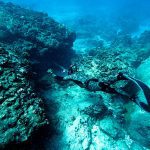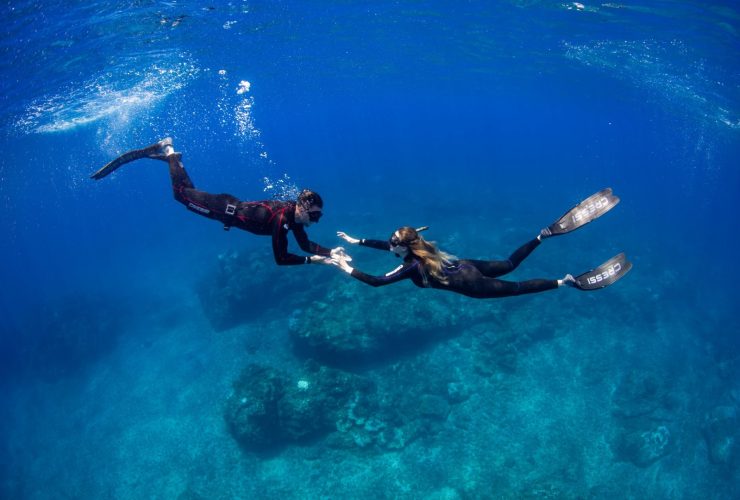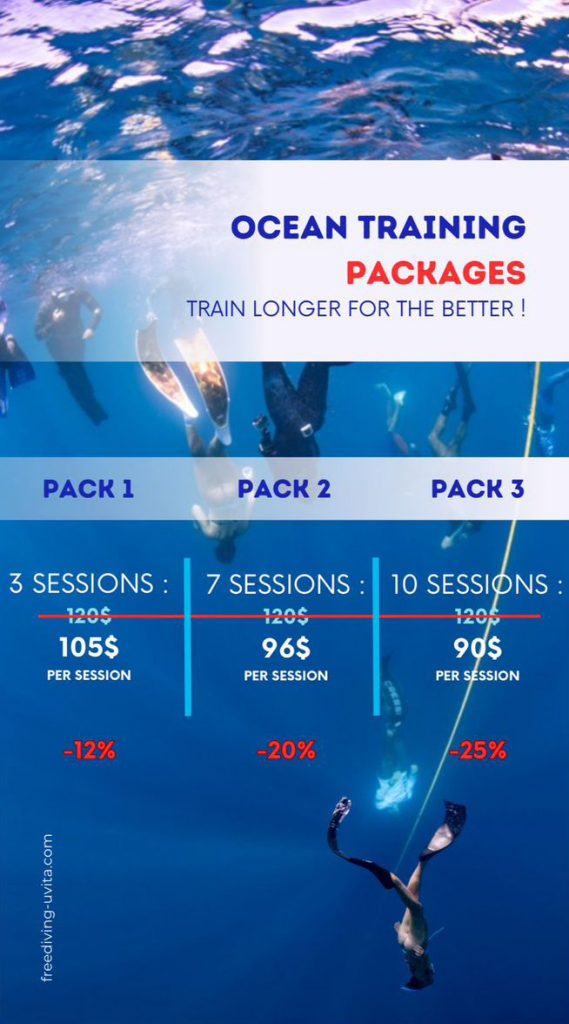Apnea diving, better known as freediving, offers much more physical and mental advantages than what most people consider to be just a plunge to see what is happening in the underwater world. Freediving builds your mental resilience, efficiency in breathing, and self-awareness, either from the deep ocean or on land during breathing techniques. Below are some of the key benefits that this unique activity can offer:
1. Mental Strength
The other aspect that is highly developed with freediving is mental strength; a diver should be in a position to be composed at moments when conditions appear to be adverse. Overcoming a situation that pushes the limits of your comfort zone helps you build self-discipline.
Self-discipline to overcome obstacles: Free diving teaches you to remain calm and focused while one is facing difficulties that regard holding one’s breath over a longer period than it feels comfortable or the deep underwater environment.
Techniques for enhancing concentration: The freediver must be able to concentrate harder. Through regular training, divers become capable of excluding their surroundings from their minds and retaining mental clarity.
Weekly exercises for enhancing daily life: regular and steady concentration and mindfulness during the week-even outside of the water-will keep your mind clear. This type of practice will steadily enhance your abilities with regards to dealing with stress and taking care of the challenges of daily life with much greater focus and calm.
2. Enhanced Breathing
The ability to control breathing in freediving can bring a great deal of benefit to your everyday life.
Breathing techniques to expand the lungs: Correct diaphragmatic breathing expands the lungs, allowing a person to hold his or her breath longer and to breathe more efficiently during sports activities or at any time when he or she is under stress.
Relaxation procedures useful in everyday life: With freediving, you also learn a set of relaxation techniques that free you from tension, making it easier to relax and raising your dive performance. These techniques are similarly very useful when you need to get rid of anxiety or to feel more composed in your daily life.
Weekly exercises for continued improvement even after certification: Yes, practice needs to continue even after getting freediving certification. You should try to set aside some time each week for a few specific breathing exercises that will further enhance your lung capacity and the state of relaxation you can reach, ultimately contributing to better dives and a general feeling of well-being.
3. Self-Awareness
Freediving is a sport, but it is really a journey of self-discovery. Controlling the breath and stretching physical limits bring an ever-growing awareness of both body and mind.
Control of body and mind through breath control: Freediving is a kind of meditation in which one becomes aware of all the signals of the body and the state of one’s mind. The ability to control your breathing means controlling your mind since, with good breathing, you will be able to keep yourself calm and composed in any situation.
Better awareness of what your body is saying and needs: Through practice, you will slowly but surely learn to listen more carefully to the needs of your body. It could be noticing the way it acts with low oxygen or that you know you have to take it a bit easy today. Any form of awareness like this is one way of bolstering your overall health.
See how your body acts with less oxygen: One of the great discoveries when freediving is finding out how your body can act in low conditions of oxygen. Building up these states in a gradual manner, but in control, helps one discover just how adaptable the human body is and builds much more confidence and trusting in oneself.
Conclusion
It is more than a sport; it’s a practice meant for the holistic strengthening of the mind, improvement in breathing, and most importantly, heightening of self-awareness. Knowledge and techniques learned in freediving find their application in everyday life, but in the long run, they will make a person not just a better diver, but instead, contribute to a quiet, focused, and healthier lifestyle. While its mental discipline, refined breathing techniques, or better understanding of your body is practiced, the benefits of freediving far outreach any water-related activity.






